The French challenge after the European elections
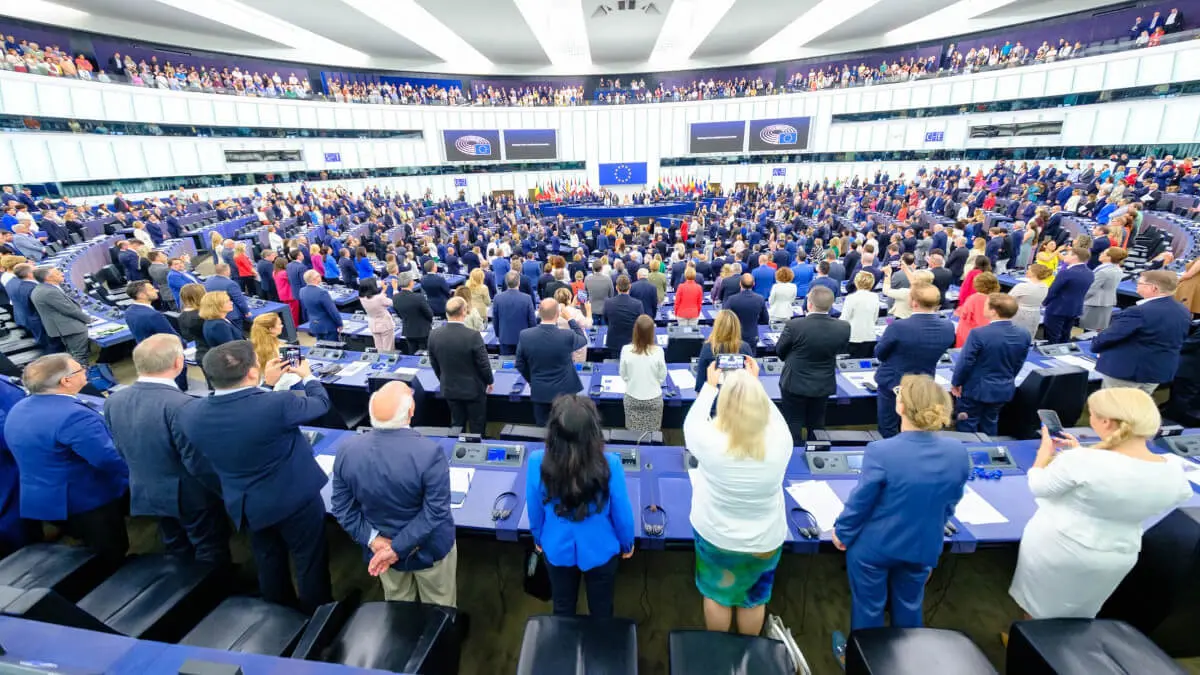
Five years after the last elections to the European Parliament, and despite the fears and false predictions of certain analysts, perhaps driven and fuelled by disinformation campaigns interested in a weak European Union, a solid alliance of the traditional pro-European families has once again been forged, namely the European People's Party (EPP), Progressive Alliance of Socialists and Democrats (S&D), and the Renew Europe Party (RE). In Spain, the elections were won by the People's Party with 22 MEPs followed by the PSOE with 20 out of a total of 61 MEPs. The remaining 19 MEPs were distributed among 7 parties. Almost 65% of Spaniards opted for the two great pro-European families in our country, demonstrating that in Spain there is a settled Europeanism.
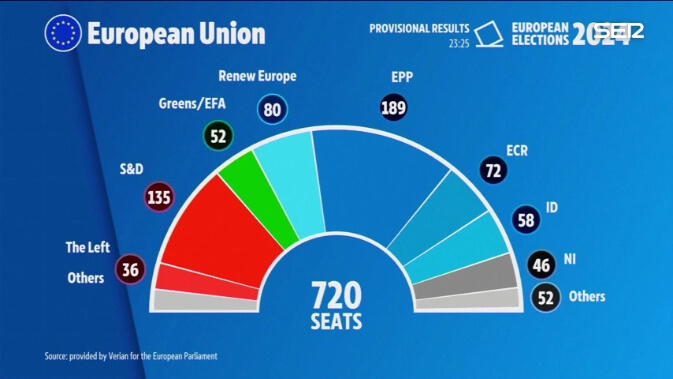
These latest elections have been transcendental not only because they represent a renewal of leaderships in the various European institutions, fundamentally in the European Parliament, but also because of the repercussions they will have on the election of the President of the European Commission, the composition of the College of Commissioners, and the appointment of the High Representative for Foreign Affairs and Security Policy-Vice-President of the European Commission. All these appointments must be confirmed by the European Parliament and will have a decisive impact on the EU's legislative and policy direction for the five-year period 2024-2029.
The following is a detailed analysis of the 2024 elections, highlighting their importance, the main parties and candidates, and the key issues that dominated the election campaign.
It should be recalled that the importance of these European Parliament elections is crucial because this institution, democratically elected by all European citizens since 1979, now represents more than 447 million European citizens and has increasing powers including the adoption of legislation jointly with the Council of the European Union, the EU budget (the so-called financial perspective or multiannual financial framework) and supervisory powers.
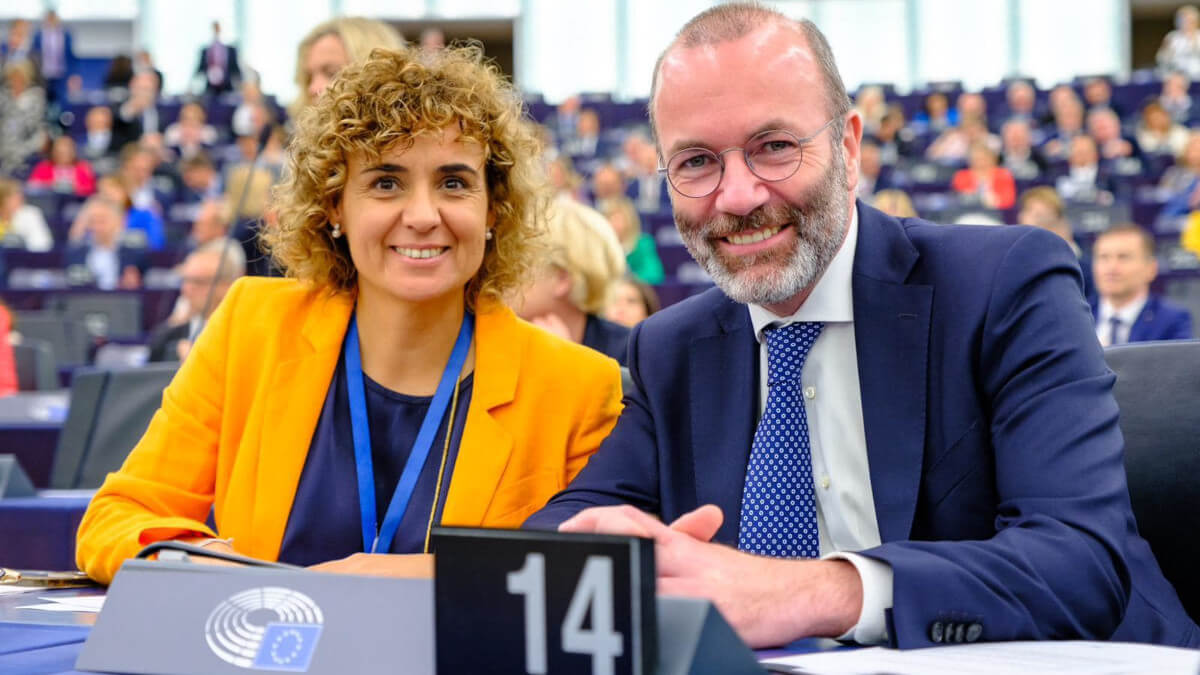
But why were the elections to the European Parliament particularly relevant?
- Because of a renewal of the leadership of the European Union which decides the overall political direction of the Union.
- The Post-Brexit context: apart from definitively closing the new relationship between the EU and the United Kingdom, its exit has led to a reconfiguration of the political dynamics in the European Parliament (British exceptionalism has diminished and there has been an alteration in the reallocation of members of the European Parliament by country, as well as the subsequent alteration of balances between member states).
- Current Crises and Challenges: The EU faces significant challenges, such as post-pandemic economic recovery, climate change, and geopolitical tensions with Russia and China. These elections have reflected how citizens perceive the management of these challenges by their current leaders within the European Union. European citizens have clearly voted for the necessary financial, economic and military support that Ukraine should continue to receive in the face of the aggression it has suffered from Russia, where the latter has gone from being a strategic partner of the EU to a destabilising and increasingly assertive adversary. In the case of China, European citizens have given their endorsement to their European leaders to continue with a policy of cooperation with China, which is seen as an increasingly aggressive competitor with protectionist measures, and where transparency and cooperation should guide EU-China relations, where the European Union has identified certain strategic areas in which the Union should pay attention and be especially sensitive in its relations with such an important partner as China.
The following are the main parties and candidates that ran in the elections, among which we can highlight the following:
- European People's Party (EPP): Traditionally the largest group, the EPP is a coalition of centre-right parties. Manfred Weber, leader of the EPP, seeks to maintain his group's influence in the next legislature. His proposals focus on strengthening the EU's economy, security and stability.
- Progressive Alliance of Socialists and Democrats (S&D): Represents the centre-left parties. The S&D, led by Iratxe García Pérez, has stressed the need for stronger social policies and greater European integration, emphasising social justice and labour rights.
- Renew Europe (RE): This liberal and centrist group, which includes Emmanuel Macron's party, has emphasised innovation, the digital single market and a stronger Europe on the global stage. Guy Verhofstadt is a prominent figure in this group, known for his advocacy of greater European integration.
- Greens/EFA: The Greens have gained popularity due to growing concern over climate change. Led by Ska Keller and Philippe Lamberts, their campaigns focus on ambitious environmental policies, social justice and human rights.
- Identity and Democracy (ID): This right-wing, Eurosceptic group, which includes parties such as Matteo Salvini's League in Italy and Marine Le Pen's National Rally in France, seeks to limit European integration and emphasise national sovereignty.
We will also briefly analyse the key issues of the election campaign that will influence the Union's future policies, among which we can highlight the following:
- Climate change: With the European Green Pact underway, there have been numerous debates on how to achieve climate neutrality by 2050. Parties have put forward diverse proposals on renewable energy, sustainable transport and agricultural policies. The Greens/EFA have been particularly active in proposing ambitious policies to reduce carbon emissions and promote the circular economy.
- Economy and employment: Economic recovery after the COVID-19 pandemic remains a central concern. Parties have debated how best to foster economic growth, reduce unemployment and manage public debt. The S&D advocated an approach that prioritises public investment and social protection, while the EPP emphasised the need for structural reforms and fiscal discipline.
- Migration and security: Migration management and security at the EU's borders are recurring themes. Positions range from more humane asylum policies, advocated by groups such as the Greens/EFA and S&D, to stricter border controls and greater internal security, promoted by Identity and Democracy and some EPP members.
- Digitalisation: The digital transformation and regulation of big technologies have been discussed at length. Issues such as data protection, artificial intelligence and the EU's digital competitiveness were addressed. Renew Europe was a key advocate of a regulatory framework that encourages technological innovation while protecting citizens' rights.
- Foreign relations: Foreign policy, especially in relation to Russia and China, has been a key theme. Parties debated how the EU should position itself on the global stage and handle relations with these powers. The EPP and Renew Europe advocated a firm stance against Russia and a strategic approach towards China, while other groups emphasised the need for a multilateral and diplomatic approach.
The current configuration of the European Parliament after the 6-9 June 2024 elections continues to have a clear pro-European majority:
Despite initial pessimism regarding the polarisation that was taking place between pro-European and non-European forces, in the end the results have been better than expected and out of a total of 720 seats the Group of the European People's Party (Christian Democrats) with a percentage of 26.11% of the vote has obtained 188 MEPs; the Group of the Progressive Alliance of Socialists and Democrats in the European Parliament with 18.89% of the votes won 136 MEPs; the Renew Europe Group with 10.69% of the votes won 77 MEPs, if we include other pro-European forces such as the Group of the Greens/European Free Alliance with 7.36% of the votes and 53 seats. Analysing these data, we can see that the EPP, S&D, Renew Europe and Greens/EFA together account for 454 MEPs (63.05% of the votes), which is a large absolute majority of the pro-European forces compared to other groups considered Eurosceptic or wanting another Europe (Patriots for Europe 84 MEPs and 11.67% of the votes; European Conservatives and Reformists Group with 78 MEPs and 10.83% of the vote; The Left GUE/NGL 46 MEPs and 6.39% of the vote; Europe of Sovereign Nations with 25 seats and 3.47% of public support and the Non-attached with 33 MEPs representing 4.58% of the vote.
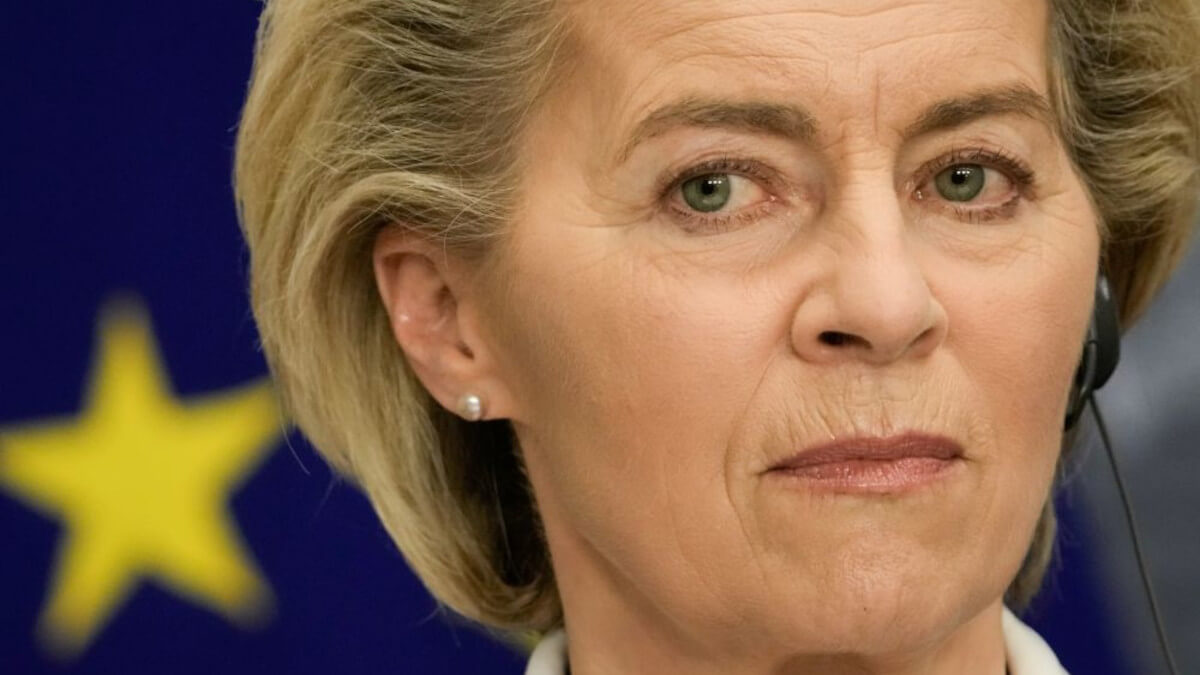
The EPP remains the largest party in the European Parliament and the new President of the European Parliament will continue to be Roberta Metsola, a member of this political family. Estonia's Prime Minister Kaja Kallas of the Renew Europe Party resigned on 23 July when she was nominated as head of European diplomacy, a post she will take up at the end of the year. And the former Prime Minister of Portugal, the socialist António Costas, who after the good result of his party in his country being one of the only three countries where the socialist party won, has been proposed by the heads of state and government of the 27 member countries of the Union to occupy the position of President of the European Council as a result of the S&D Group's quota among the three positions to be elected in the European Union after the legislature pact that the parliamentary groups PPE, S&D and Renew Europe reached after the European elections of 2024. If Italian Prime Minister Giorgia Melloni, whose country represents the third largest economy in the European Union, should have been taken into account in these negotiations, my personal opinion is yes, because Europe must be united in diversity and it is always better to integrate than to divide or isolate, it is better to add than to subtract, especially at this time of uncertainty, both in the process of European integration, where the eternal debate continues on whether to deepen or widen, as well as the postponed institutional reforms to make the European Union more operative and the elimination of unanimity in Council votes if we want to make progress on security, foreign and defence policy. We are talking about the fact that Italy is also one of the founding countries of the European Union and that its pro-European commitment with different visions, for example in the management of the migratory phenomenon, could give rise to new solutions based on consensus and serve as a spur to other political groups considered Eurosceptic to join the common project.
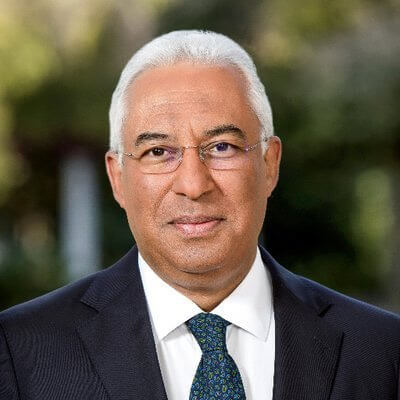
In short, the future of the European project will depend to a large extent on the ability of the new leaders to forge consensus and respond effectively to citizens' concerns. The climate crisis, economic recovery, migration management and external relations will remain central issues on the EU's political agenda. As the EU faces these complex and evolving challenges, these elections have provided an excellent opportunity to renew democratic engagement, strengthen European unity by making it more resilient and prepared for the challenges ahead, not least enlargement to the Western Balkans and other states that currently have candidate status such as Ukraine, Moldova and Georgia. It will also be essential to integrate Eurosceptic forces into the European integration process so that they can gradually incorporate it and make it their own. Europe will not only be what its institutions, its member states, want it to be, but above all what its citizens want it to be, and for all this we must build a genuine European demos that, to paraphrase Stefan Zweig, allows all European citizens to make Europe the homeland of our choice, compatible with other senses of belonging that enrich us as citizens and enrich our Europe.
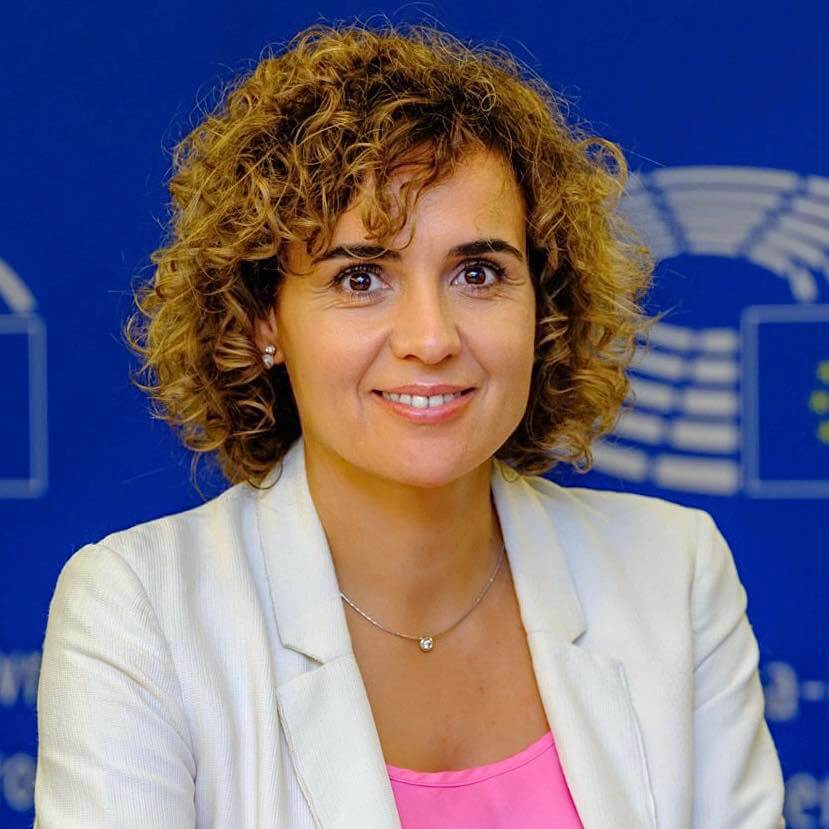
But this European future will also depend on the commitment of each European state to it and on maintaining unity among all of them, and at present, the main problem is in France, where Marie Le Pen's extreme right was the most voted force in the elections to the European Parliament and gave the first scare, which has not been endorsed in the French legislative elections, where the National Front has not obtained a majority and a government of national unity of forces that are committed to French republican values and Europeanism can be formed. We must bear in mind that France is the second largest economy in the European Union and a decisive country in the process of European integration. After the Olympic Games in Paris, the President of the Republic, Emmanuel Macron, will have to bring together the greatest possible consensus between centrist, pro-European positions that are far removed from extremes and that can bring stability to France based on common sense and serious, effective policies far removed from populist recipes.
Carlos Uriarte Sánchez
Secretary General of Paneuropa España, Vice-President of the European Coudenhove-Kalergi Society and Professor of Law at the Universidad Rey Juan Carlos.

